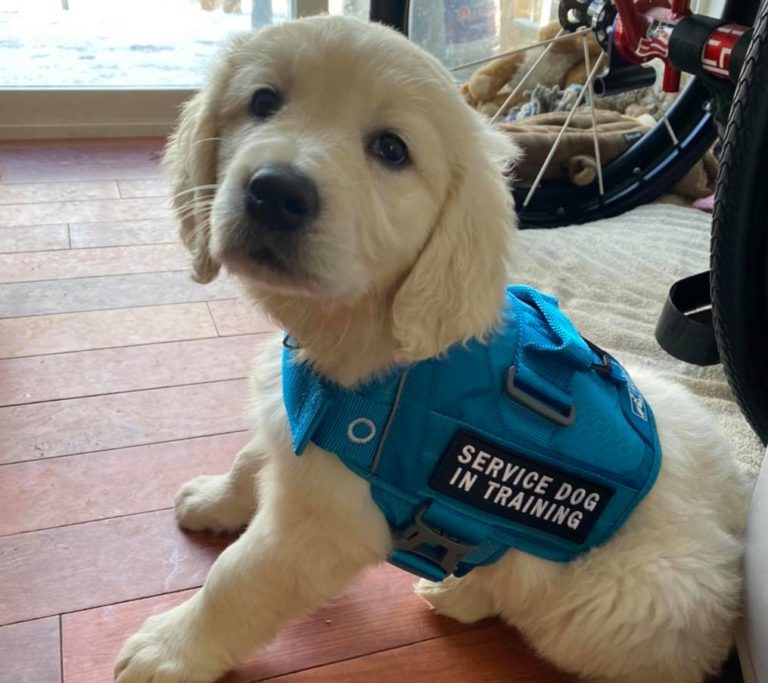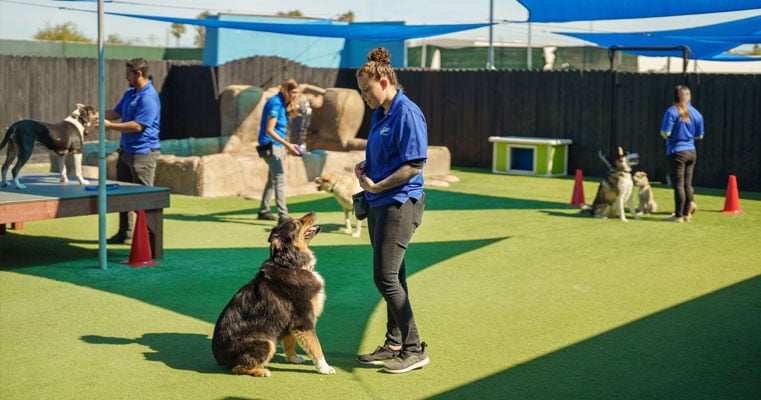Dog Training Charlotte NC: Your Course to a Well-Behaved Dog
Dog Training Charlotte NC: Your Course to a Well-Behaved Dog
Blog Article
Unlock Your Dog's Possible: Proven Dog Training Approaches for Success
Reliable dog training is a nuanced process that pivots on comprehending canine habits and utilizing scientifically backed strategies. By integrating favorable reinforcement, developing clear commands, and prioritizing socializing, pet dog owners can cultivate an effective connection with their family pets.
Recognizing Canine Behavior
Comprehending dog habits is important for efficient training and cultivating a positive connection between pet dogs and their owners. A thorough grasp of canine body movement, articulations, and social interactions is vital for recognizing their requirements and feelings. Canines interact mostly through non-verbal signs; as an example, a wagging tail may indicate excitement, while pinned ears can indicate anxiety or entry.

In addition, ecological factors play a substantial duty fit a dog's behavior. Changes in routine, new environments, or the visibility of strange people can result in anxiety or anxiety in pet dogs. Acknowledging these triggers allows owners to mitigate negative reactions and create proper training strategies.
Eventually, a deep understanding of pet habits lays the foundation for successful training methods, boosting both behavior and the general bond in between the dog and its proprietor. Dog training. This understanding is essential for cultivating a well-adjusted, delighted canine companion
Positive Reinforcement Strategies
Efficient training relies greatly on positive reinforcement strategies, which have been revealed to yield considerable lead to shaping wanted behaviors in dogs. This method includes awarding a pet dog for exhibiting particular behaviors, therefore boosting the probability that these actions will certainly be repeated. Incentives can take numerous forms, including deals with, appreciation, toys, or playtime, depending on what inspires the private canine.

It is important to slowly phase out rewards as the pet dog discovers the actions, transitioning to recurring support. This strategy preserves the behavior in time while stopping dependency on continuous rewards. By focusing on favorable support, instructors can grow a trusting partnership with their pets, promoting a healthy and participating training atmosphere that enhances general obedience and performance.
Establishing Regular Commands
An essential element of successful pet training is the facility of regular commands. Uniformity in commands is vital for effective communication in between the instructor and the pet. When commands are consistent, pet dogs discover to associate particular words with preferred behaviors, which accelerates the training procedure and enhances understanding.
To develop regular commands, it is necessary that all family participants utilize the same terms and motions. If one person utilizes "sit" while one more states "rest down," it can create complication for the canine. Select clear, distinct words for commands and make certain everybody entailed in the pet's training sticks to these choices.
Additionally, repeating is vital. Reinforce commands with frequent technique, ensuring that the pet obtains adequate possibilities to react correctly. When a dog efficiently complies with a command, instant positive reinforcement needs to comply with. This can be in the type of deals with, praise, or playtime, strengthening the link in between the activity and the command.
Lastly, be client. Developing consistent commands takes some time and effort. With devotion and clearness, you will certainly aid your pet create a strong understanding of assumptions, ultimately bring about a well-behaved buddy.
Socialization and Direct Exposure
Interacting socially a dog is essential for promoting a positive and well-adjusted friend. This procedure includes subjecting your pet dog to a variety of settings, people, and various other pets to establish their social skills and flexibility. Early socialization, ideally in between the ages of 3 to fourteen weeks, is crucial, as it prepares for a pet dog's future habits.
During socializing, objective to supply positive experiences in various setups, such as parks, active streets, and homes with other animals. Present your pet to different stimuli, including noises, views, and scents, ensuring that each encounter is gratifying. This exposure assists minimize fear and anxiety, paving the means for a much more resilient canine.
Involving in regulated group play sessions with other dogs can also enhance social abilities, instructing your pet suitable interactions and borders. Prioritizing socialization will considerably add to your pet's general joy and behavior throughout their life.
Overcoming Common Training Difficulties

Another regular issue is diversion. Canines may battle to concentrate in strange or hectic setups. Slowly desensitize your pet dog to interruptions by starting training in a peaceful atmosphere and slowly introducing more stimuli as they come to be proficient (Dog training). Positive support methods, such as treats and praise, can keep motivation and focus.
Furthermore, behavioral problems like leaping or extreme barking can become discouraging. Address these by showing alternative habits, such as sitting comfortably when welcoming guests. Consistency and perseverance are crucial; enhance wanted behaviors constantly and avoid abuse, which can lead to confusion.
Last but not least, recognize that each pet is one-of-a-kind, and training timelines may differ. Tailor your strategy to your pet dog's individual needs, and look for expert support if necessary. With willpower and the ideal methods, getting over these obstacles can result in a trained, satisfied canine companion.
Verdict
In conclusion, opening a canine's possible demands an extensive technique that integrates an page understanding of canine behavior, the application of favorable reinforcement techniques, and the facility of constant commands. Early socialization and direct exposure to varied atmospheres additionally improve a dog's adaptability and self-confidence. By addressing common training challenges with tailored methods and patience, a cooperative and harmonious connection between pet and trainer can be cultivated, inevitably leading to a mannerly buddy with the ability of thriving in numerous circumstances.
Effective canine training is a nuanced procedure that pivots on comprehending canine habits and utilizing clinically backed approaches.Comprehending canine habits is essential for reliable training and fostering a positive relationship between canines and their owners.Effective training relies heavily on positive reinforcement methods, which have actually been shown to yield substantial results in forming wanted habits in pet dogs. When commands are uniform, canines find out to connect certain words with preferred habits, which accelerates the training procedure and improves understanding.
In final thought, opening a dog's possible necessitates an extensive strategy that includes an understanding of canine habits, the application of favorable support techniques, housebreaking a dog and the facility of constant commands.
Report this page